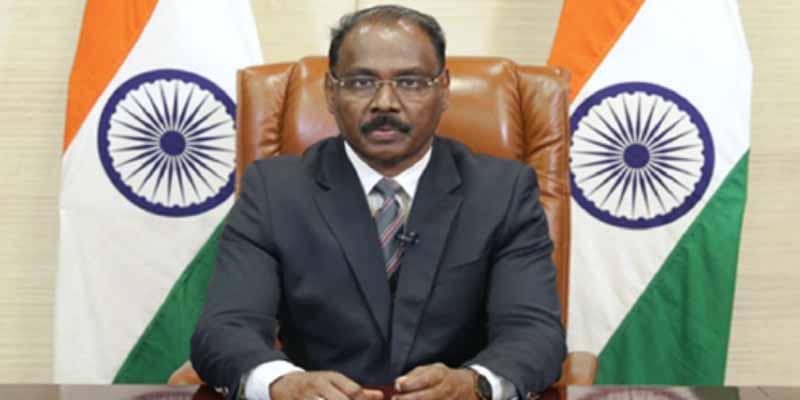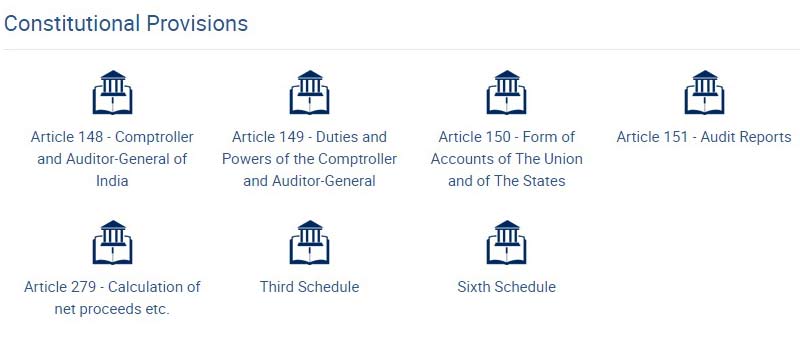- India
- Sep 25
CAG elected as external auditor of IAEA
• Comptroller and Auditor General of India (CAG) G.C. Murmu was elected as the external auditor of the International Atomic Energy Agency (IAEA) at the General Conference of the IAEA in Vienna.
• His candidature received majority support of the IAEA general conference and his tenure will be for six years, from 2022 to 2027.
• Murmu assumed office as the CAG on August 8 last year. Before assuming the charge, he served as the first Lt Governor of the Union Territory of Jammu & Kashmir.
International Atomic Energy Agency
• Widely known as the world’s ‘Atoms for Peace and Development’ organisation within the United Nations family, the International Atomic Energy Agency (IAEA) is the international centre for cooperation in the nuclear field.
• The agency works with its Member States and multiple partners worldwide to promote the safe, secure and peaceful use of nuclear technologies, contributing to international peace and security and the United Nations' Sustainable Development Goals.
• The IAEA was created in 1957 in response to the deep fears and expectations generated by the discoveries and diverse uses of nuclear technology. The agency’s genesis was US President Eisenhower’s “Atoms for Peace” address to the General Assembly of the United Nations on December 8, 1953.
• The US Ratification of the Statute by President Eisenhower on July 29, 1957, marks the official birth of the IAEA.
• In October 1957, the delegates to the First General Conference decided to establish the IAEA’s headquarters in Vienna, Austria.
• India is a founding member of IAEA.
• The IAEA has also two regional offices located in Toronto and Tokyo, as well as two liaison offices in New York City and Geneva. The agency runs laboratories specialised in nuclear technology in Vienna, Seibersdorf and Monaco.
• The IAEA’s policy-making bodies decide on the agency’s programmes and budgets. They comprise the General Conference of all Member States and the 35-member Board of Governors. The General Conference convenes annually at the IAEA headquarters in Vienna, typically in September. The Board meets five times per year, also in Vienna.
Comptroller and Auditor General
• The Comptroller and Auditor General (CAG) is the guardian or caretaker of the national purse.
• The CAG of India is appointed by the President.
• The procedure and the grounds for his removal from office are the same as for a Supreme Court judge.
• He is not eligible for further office under the Union or a state government after he ceases to hold his office.
• The accounts of the Union and of the states shall be kept in such form as the President may, on the advice of the CAG, prescribe.
• The reports of CAG relating to the accounts of the Union shall be submitted to the President, who shall cause them to be laid before each House of Parliament. The reports of the CAG relating to the accounts of a state shall be submitted to the governor of the state, who shall cause them to be laid before the legislature of the state.
• Articles 148, 149, 150 and 151 of the Constitution describe the functions and powers of CAG.
The duties and powers of CAG:
• Audits the accounts related to all expenditure from Consolidated Fund of India, consolidated Fund of each state and Union Territory having a legislative assembly.
• Audits all expenditure from the Contingency Fund of India and the Public Account of India as well as the Contingency Fund and Public Account of each state.
• Audits all trading, manufacturing, profit and loss accounts, balance sheets and other subsidiary accounts kept by any department of the central government and state governments.
• Audits the receipts and expenditure of each state and Centre to satisfy himself that the rules and procedures in that behalf are designed to secure an effective check on the assessment, collection and proper allocation of revenue.
• Audits all transactions of the central and state governments related to debt, sinking funds, deposits, advances, suspense accounts and remittance business.
• Audits receipts, stock accounts and others, with approval of the President, or when required by the President.
• Audits the accounts of any other authority when requested by the President or governor.
• Advises the President with regard to prescription of the form in which the accounts of the Centre and the states shall be kept (Article 150).
• Submits his audit reports relating to the accounts of the Centre and state to the President and governor respectively, who shall, in turn, place them before the state legislature (Article 151).
Manorama Yearbook app is now available on Google Play Store and iOS App Store



